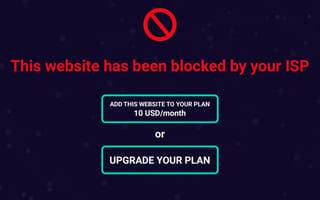
This Thursday, the Federal Communications Commission is expected to overturn regulations banning internet service providers from blocking or slowing down certain applications and services, or otherwise prioritizing traffic from some sources over others.
The proposed order, set forth by FCC Chairman Ajit Pai, has drawn criticism from a range of tech luminaries including Apple co-founder Steve Wozniak, the Mozilla Foundation’s Mitchell Baker and several technologists behind the internet’s underlying architecture.
Members of Chicago’s tech community are speaking up as well.
“The open internet is key to innovation,” said Troy Henikoff, a Chicago serial entrepreneur and managing director of MATH Venture Partners. “The wave of innovation that we’ve seen among internet companies comes from the fact that we can publish stuff and distribute it so inexpensively, and that consumers of that information can access it freely.”
Late last month, MATH signed an open letter to Pai urging the FCC leader to maintain current net neutrality rules. Other Chicago signees include Corazon Capital and Lightstream, a local Techstars graduate that provides cloud-based streaming studio software for gamers.
The open internet is key to innovation."
What net neutrality means
Under current net neutrality regulations, internet service providers, or ISPs, are required to treat all internet traffic the same. They are barred from blocking or slowing down certain services or charging companies a “toll” for reaching their customers. ISPs are also barred from offering special tiers of service — so-called “fast lanes” — to content providers willing to pay for the privilege.
According to net neutrality advocates, this requirement fosters innovation by lowering the barrier of entry for new startups, who might not have the resources to pay for special treatment.
Henikoff said some of the world’s most popular companies might never have been able to get off the ground without such protections.
“YouTube never could have existed, because they were one of the world’s biggest bandwidth hogs and they didn’t have much money before Google bought them,” he said.
This concern isn’t purely theoretical. The current set of net neutrality rules were implemented in 2015, a year after a court decision stripped the FCC of the authority to enforce net neutrality under existing laws. In the interim, Netflix and Comcast got into a heated public debate over whether Comcast could charge Netflix for the content its customers accessed. The streaming service accused Comcast of effectively “double-dipping,” since broadband customers are already paying the company for unlimited access to the internet.
Although much of the current debate has been centered around video streaming, net neutrality is a concern for entrepreneurs of every stripe. In a recent opinion piece published by Wired, Contextly co-founder and CEO Ryan Singel said his company was able to get off the ground without outside funding because its recommendation engine could show up on tens of millions of news articles across the web on a $288.55 monthly server fee.
"Without net neutrality there would be no Cards Against Humanity or any other indie games."
Chicago’s tech leaders step into the fray
Earlier this month on Twitter, Cards Against Humanity co-founder Max Temkin said startups like his would also be hard hit by a repeal of net neutrality rules.
"Without net neutrality there would be no Cards Against Humanity or any other indie games," Temkin wrote. "Imagine if AAA studios were allowed to pay Comcast and Verizon to sabotage and slow down competitors. It would devastate indie games."
Last week, Cards Against Humanity hired billboard trucks to support net neutrality protests around the country. Lightstream CEO Stu Grubbs took to Twitter on Tuesday to urge followers to call Congress about the upcoming vote.
“I grew up as a witness to the dawn of the internet and understand the power and impact of free and open access to all information,” Grubbs told Built In. “To put the power to restrict information in the hands of the access points is antithetical to what the internet should and could be. Would you buy a car, or buy gas for that car, if you had to pay extra fees or add-ons to go certain places?”
Grubbs said he’s also concerned that the removal of net neutrality protections could put companies like his at the mercy of service providers. For instance, if Comcast were to decide that content creators using Lightstream were taking away viewers from its TV service, the ISP could make internet access more expensive for them.
Responding to a Wall Street Journal opinion piece by Pai, Signal CTO Eric Lunt said the chairperson mischaracterized the history of net neutrality.
In Pai’s telling, today’s net neutrality regulation is a rejection of a “light-touch” regulatory regime that had been in place since 1996 but was overturned by President Obama in the wake of the 2014 midterm elections. The opinion piece makes no mention of the 2014 court decision that upended the FCC’s longstanding regulatory approach — or that Pai is a former attorney for Verizon.
To Henikoff, the net neutrality issue is one that transcends the tech sector because of the impact startups have on the overall economy.
“We have seen a period of innovation unlike any seen ever before, both in terms of the rate of innovation and the value it has brought,” said Henikoff. “I’m for more of that, not less of it. Nearly all of the new job growth in the United States comes from companies five years or younger, so limiting access to innovation to established companies is a bad idea.”
To learn more about how you can aid the fight for net neutrality, visit Battle for the Net.





.jpeg)
